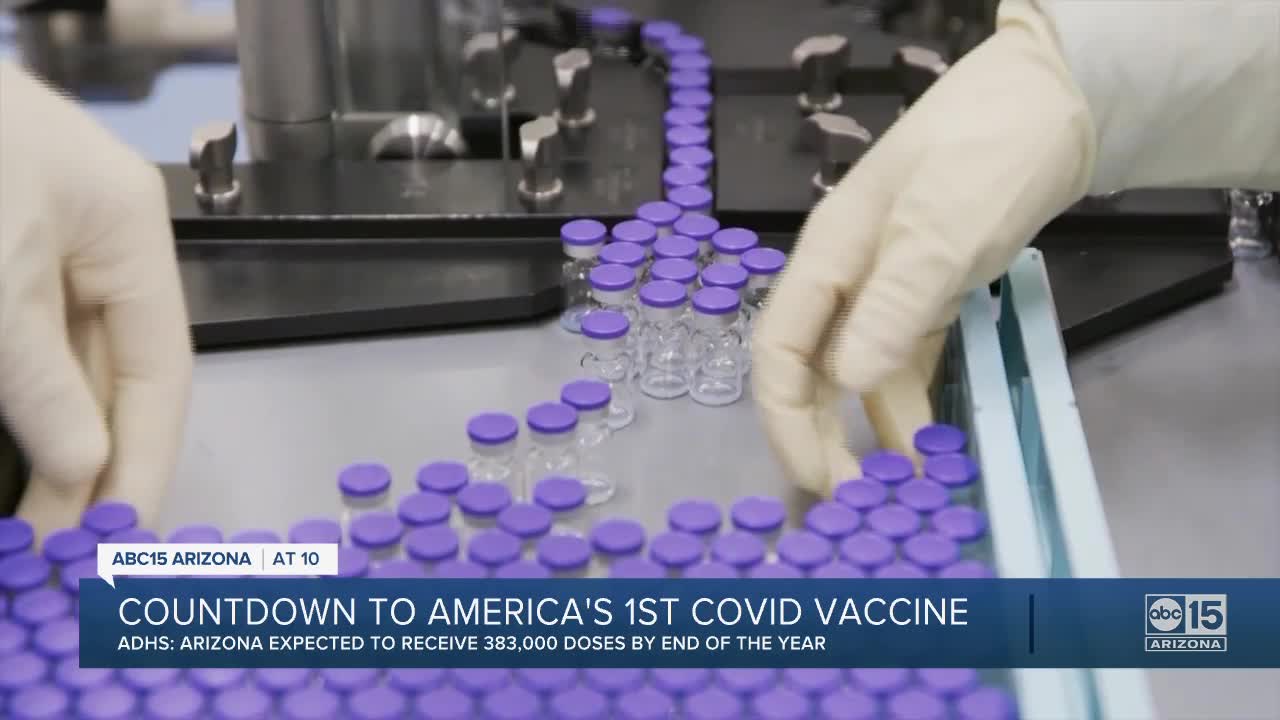PHOENIX — Health officials are warning those with severe allergies about possible complications with the Pfizer coronavirus vaccine.
“At this point, if you came to me and said 'take it,' I’d have to say no, not until I know what’s in it,” said Judy Toth of Prescott.
Toth wants to get the coronavirus vaccine, but like more than 3.5 million other Americans, she suffers from severe allergies.
“I carry an EpiPen. I mean, it’s severe,” said Toth.
Contact with the wrong food or substance can land her in the hospital. In fact, she can’t get the flu vaccine because it contains egg. (Editor's note: there are egg-free alternatives to the flu vaccine.)
“So I always need to know what’s in things that are going into my body that I’m going to be eating or touching or whatever,” said Toth.
For Judy, it’s a life-or-death daily task, as thousands of doses are set to roll out here in Arizona next week.
Doctors say her concerns aren’t without merit after two people in the UK with a history of severe allergic reactions, received the vaccine.
“It turned out that two, what turned out to be health care workers, experienced anaphylactoid reactions where they had a significant allergic reaction after being vaccinated,” said Dr. Murtaza Akhter.
While it’s unclear what exactly caused the reaction, Dr. Akhter is warning there isn’t enough information to guarantee its safety in that population.
“Now, remember in the trials, people with severe allergies were excluded, so they weren’t studied anyway,” said Dr. Akhter.
Arizona is expected to receive 383,000 doses of the Pfizer vaccine by the end of the month.
The first doses will go to frontline health care workers and long term care facilities. He says it’s those in the first group that experts across the board should be paying close attention to.
“I would treat this in terms of the level of scrutiny and watchfulness as if these people were in a trial, for these first rounds of people I would hope people are actually monitoring them,” said Dr. Akhter.
The state says they will be throughout the process. Dr. Akhter says everyone with underlying conditions should consult their primary care doctor prior to getting the vaccine. But he adds it should be safe for the vast majority of the population.



